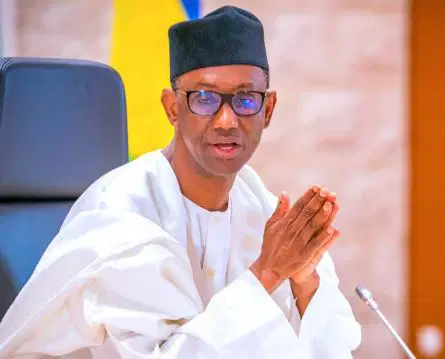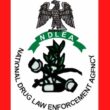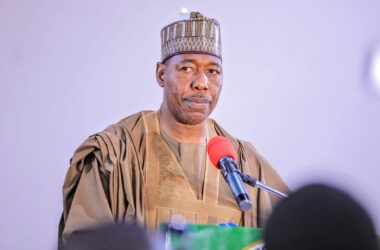The Federal Government of Nigeria is currently investigating the Gulf of Guinea (GoG) as a key route for arms trafficking into the country, according to the National Security Adviser (NSA), Mallam Nuhu Ribadu.
The GoG, known for its vast natural resources, is increasingly becoming a focal point for organized crime syndicates involved in illegal activities, including the smuggling of small arms and light weapons (SALW).
Ribadu disclosed this during a two-day seminar held in Abuja, titled Climate Change and the Changing Dynamics of Arms Proliferation and Insecurity in the Gulf of Guinea: Nigeria in Perspective.
The event was organized by the National Centre for the Control of Small Arms and Light Weapons (NCCSALW), in collaboration with the Global Network for Human Development. Ribadu was represented by Ibrahim Babani, the Director of External Affairs from the Office of the National Security Adviser (ONSA).
In his address, Ribadu explained that the Gulf of Guinea region, consisting of 16 countries and an unbroken coastline stretching over 6,000 kilometers, is a critical maritime gateway between Africa and the rest of the world.
The region is rich in resources, holding about 24 billion barrels of crude oil reserves, and contributes approximately five million barrels of oil daily to the global market. However, this wealth has attracted organized crime networks, leading to a rise in various illegal activities.
“Organized crime syndicates are involved in various devastating crimes, notably drug trafficking, human trafficking, oil theft, kidnapping, piracy, and the smuggling of contraband goods,” Ribadu said.
Among these illicit activities, the smuggling of small arms and light weapons poses a significant threat to the region’s security. While the proliferation of SALWs through the maritime sector has been reported, the Nigerian government is intensifying its investigation into the Gulf of Guinea as a major route for arms trafficking.
Ribadu also emphasized the growing concern over the connection between climate change, armed violence, and the proliferation of illegal arms in the region. The easy availability of SALWs in the hands of non-state actors and international criminal networks has exacerbated insecurity, not only in Nigeria but across the Gulf of Guinea.
In 2023, the Gulf of Guinea was responsible for all 14 reported crew kidnappings and 75% of hostage-taking incidents involving ship crews. “Additionally, two crew members were injured, reinforcing the GoG’s reputation as treacherous waters for seafarers,” Ribadu added. Criminal activities in the region have evolved from oil looting to targeting seafarers for ransom, a worrying trend that demands urgent attention.
Speaking at the seminar, the Director-General of the NCCSALW, retired Deputy Inspector General of Police Johnson Kokumo, highlighted that climate change is further worsening instability in the region, making it easier for criminal networks to operate.
“We must reflect on how the changing climate exacerbates insecurity, weakens governance, and allows the illegal arms trade to thrive,” Kokumo said. He also emphasized the need for strong national and regional arms control frameworks to tackle these emerging threats. He assured participants of the NCCSALW’s commitment to addressing the proliferation of SALWs.
The guest lecturer at the seminar, Dr. Dickson Orji, President of the GOLHD Centre, added that the majority of illicit arms in Nigeria are smuggled through the maritime sector.
He urged the government to increase efforts in monitoring the maritime domain, as it plays a significant role in the entry of illegal arms into the country. He recommended stronger collaboration between security agencies to ensure effective maritime security and continuous advocacy to curb the illegal arms trade.










